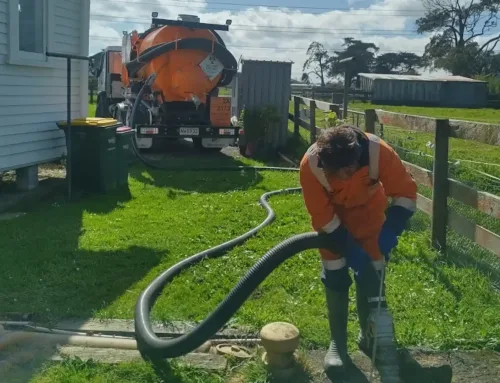Excitement About Reclaim Waste
Excitement About Reclaim Waste
Blog Article
The Reclaim Waste Ideas
Table of ContentsNot known Facts About Reclaim WasteThe Best Strategy To Use For Reclaim WasteSome Known Factual Statements About Reclaim Waste Things about Reclaim WasteNot known Facts About Reclaim Waste
Discover the kinds, incidents, and forms of fluid waste. Domestic sewage waste refers to the waste and items from a property sewage-disposal tank. This sort of waste is produced by humans in residences, institutions, and various other buildings. This only includes sewage-disposal tanks that have a drain area. The proper administration and disposal of domestic sewer waste require fluid waste to be moved to a sewer treatment plant where the proper techniques and tools are put on purify and dispose of waste.
Commercial waste commonly consists of potential threats, such as flammable products or a mix of liquid and strong waste items, and needs an advanced and comprehensive disposal procedure. The disposal of business waste usually entails the filtration of waste before transportation to make sure secure and proper disposal. Industrial waste is created from by-products and drainage of commercial procedures and manufacturing.
This sort of waste can not use the same sewage administration transport or procedures as septic or commercial liquids. The commercial waste management process calls for the inspection and testing of liquid waste prior to it undertakes the disposal procedure (liquid waste disposal). Drainage waste is the fluid waste that originates from overflow and excess stormwater in very inhabited locations or cities
Drainage waste can trigger contamination and flooding if not managed appropriately. Discover a lot more regarding sewer cleaning and waste monitoring. Making certain correct waste monitoring can stop calamities and minimize environmental damage. Both individuals in residential setups and professionals in commercial or production industries can profit from understanding the processes and laws of fluid waste monitoring.
The 4-Minute Rule for Reclaim Waste
Call PROS Solutions today to find out about our waste administration and disposal services and the correct ways to care for the fluid waste you generate.
(https://reclaimwaste1.creator-spring.com)Do you understand what occurs to your water when you disengage, flush the commode or drain the cleaning machine? No? Well, it's worth knowing. This so-called 'wastewater' is not only a crucial source but, after treatment, will certainly be launched to our land, rivers or the ocean. Utilized water from toilets, showers, bathrooms, kitchen area sinks, laundries and industrial processes is called wastewater.

water made use of to cool down machinery or clean plant and equipment). Stormwater, a kind of wastewater, is overflow that streams from agricultural and metropolitan locations such as roofing systems, parks, yards, roads, paths and rain gutters into stormwater drains, after rainfall. Stormwater streams unattended directly to neighborhood creeks or rivers, eventually reaching the sea.
Reclaim Waste Things To Know Before You Get This
In Queensland, the majority of wastewater is treated at sewage treatment plants. Wastewater is transferred from residential or commercial sites via a system of drains and pump terminals, known as sewage reticulation, to a sewage treatment plant. Local governments develop, keep and operate most sewer treatment plants. Operators are accredited under the Environmental Management Act 1994 to discharge treated wastewater check out here at an acceptable ecological requirement into waterways.
The Division of Natural Resources encourages city governments about managing, operating and keeping sewerage systems and treatment plants. In unsewered areas, regional federal governments might call for homeowners to install specific or family sewage therapy systems to deal with residential wastewater from bathrooms, cooking areas, bathrooms and washings. The Division of Natural Resources authorises the use of home systems when they are proven to be effective.
In some new subdivisions, treatment of some stormwater to remove litter, sand and gravel has actually begun using gross toxin traps. Wastewater therapy occurs in four phases: Removes strong issue.
Wastewater then flows right into huge tanks where solids settle and are removed as sludge. Grease and scum are skimmed from the surface. Uses little living microorganisms knows as micro-organisms to break down and remove continuing to be dissolved wastes and fine bits. Micro-organisms and wastes are incorporated in the sludge. Removes nitrogen and phosphorus nutrients that could trigger algal flowers in our waterways and threaten marine life.
The smart Trick of Reclaim Waste That Nobody is Talking About
Nutrient elimination is not available in all sewer treatment plants due to the fact that it calls for pricey specialised equipment. It is ending up being more usual in Queensland. Clear liquid effluent generated after therapy might still consist of disease-causing micro-organisms. If this effluent is released into rivers such as rivers or the sea, the micro-organisms will at some point die out.

Most wastewater moves into the sewage system. Under the Act, regional governments administer authorizations and licences for eco appropriate tasks (Ages) involving wastewater launches that might have a neighborhood effect.
Facts About Reclaim Waste Uncovered
Surveillance provides accurate information regarding water top quality and can confirm that licence problems are being satisfied. The info acquired with tracking offers the basis for making water high quality decisions.
Report this page